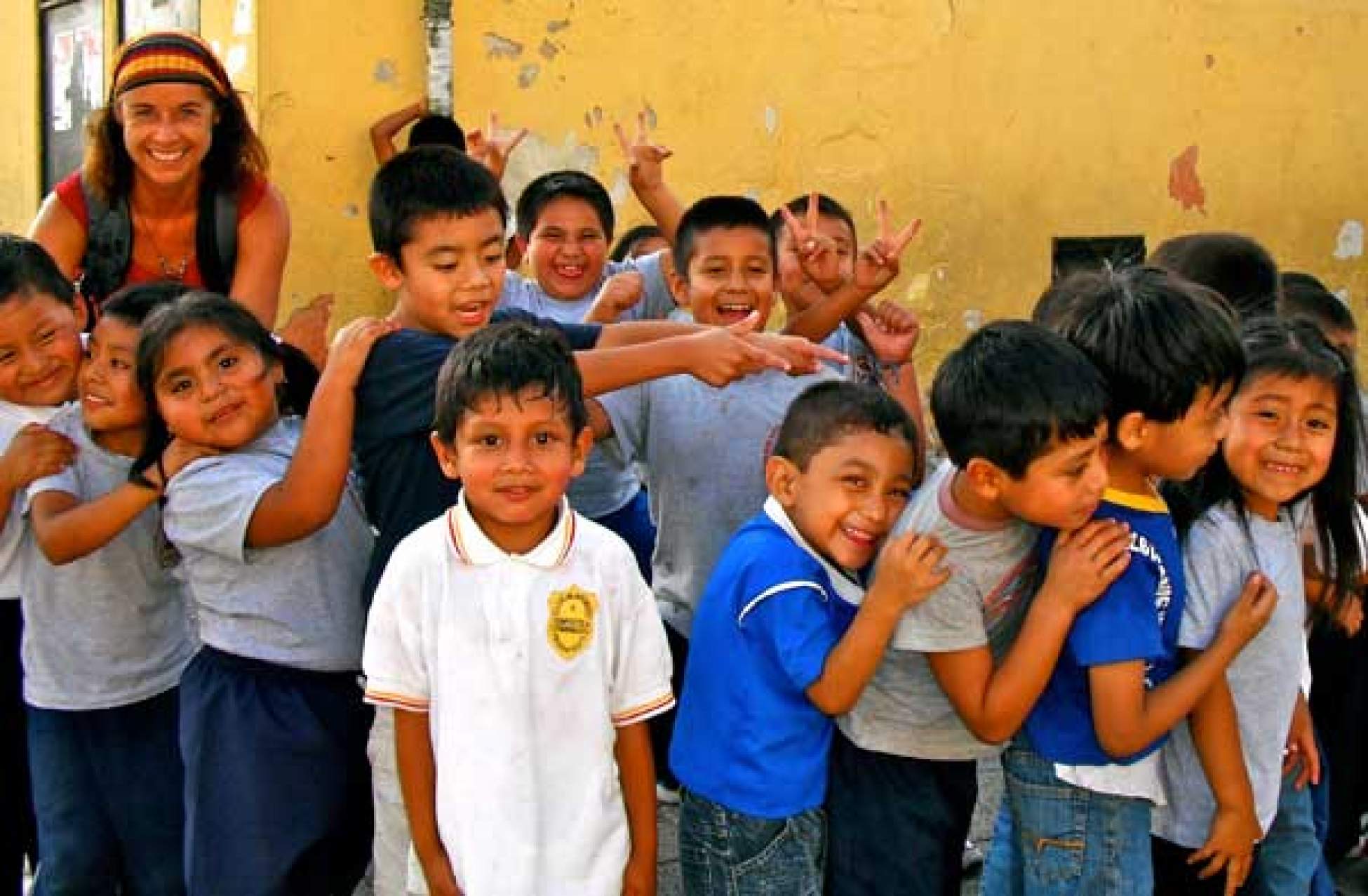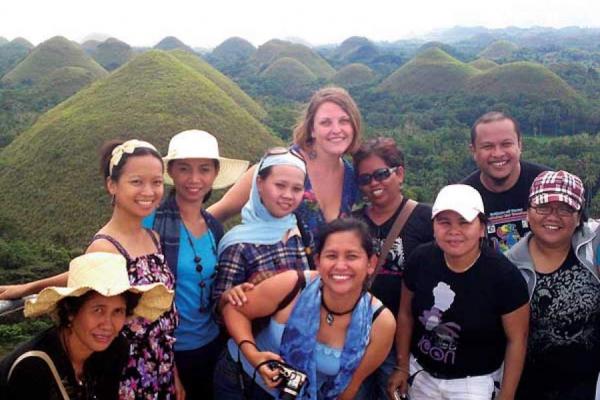Research conducted by Dr. Erin Barnhart examines the impact of international volunteers overseas—but rather than speaking with volunteer-sending organizations based in North America or Europe, she surveyed nearly 250 organizations in over 50 countries – organizations on the receiving end of international volunteerism.
We spoke with Dr Barnhart to learn more about the impact of international volunteers from the perspective of local host organizations. Here is part of that interview:
Verge Magazine: What inspired your research?
Erin Barnhart: When I was first working on my dissertation, I was working for Idealist and we would get lots of questions from people saying, “Hey, I want to volunteer abroad. I’m looking for ways to be effective and to have a meaningful experience.”
I was curious about what sort of research existed. It’s a pretty young field and a few years ago we still had a pretty limited understanding of the benefits and challenges of international service. What I could find was primarily about the volunteer experience and, to some extent, community impact. But I couldn’t find anything on the organizational perspective—what do organizations that are hosting international volunteers seek to gain from that experience? What strategies are they using? How are they learning from past experiences and are they able to share those outcomes with others? I felt like that was the missing piece of the puzzle in terms of how we can be most effective at serving across borders.
In recent years, there’s been a lot of criticism towards international volunteers joining overseas projects. So for example, the idea that short-term volunteering doesn’t have any sort of long-term impact, that it would just be better to send money directly to organizations, or that volunteers take jobs away from the community. Did your research shed any light on these sentiments or challenge that sort of thinking at all?
I can understand the criticism. In fact, I think it’s wise to be critiquing and asking the hard questions because the road to altruism is paved with good intentions.
The organizations that replied to my survey rejected the idea pretty handily that volunteers were replacing jobs. If it’s done well, in a way where the organization is determining what the volunteers are doing, and they have a steady stream of volunteers, there can be a real collective impact.
The vast majority of organizations were having people come to them for short periods of time. Yet overwhelmingly, they said it was worth it because they were able to learn those skills and have hands that were needed—but also because of that idea of changing perceptions in their community and building that global network that can continue to support them.
There’s been an incredible growth in the number of volunteer-sending organizations over the last 10 years. Given your research, what do you think are the most important roles and responsibilities of volunteer-sending organizations? What are they being successful at? Where do they need to make changes?
Some of the biggest challenges reported by these organizations are that volunteers are arriving unprepared in terms of not having the most realistic expectations of where they are going, what they’re going to be doing and what their impact is going to be. I think a lot of that comes back to a culture of people feeling altruistic and feeling like, “I’m going to change the world.”
Volunteer-sending organizations should invest time into preparing volunteers for the realities of their time on the ground helping them establish realistic expectations for learning and growing, and for how they can contribute as determined by the community.
What would be your advice to somebody who is considering an international volunteer placement—both independently or if they’re looking for a placement with the help of a volunteer-sending organization?
Take some time for yourself to really think your desire to be involved. What is that you want to do, learn and accomplish? The more clear you are on your own goals and expectations, the easier it’s going to be to work with a volunteer-sending group—or if you go on your own, to identify where there’s going to be a good fit.
Again use that lens, “If I’m only going to be there a month, realistically what can I accomplish? What can I realistically expect to do?” Try to be aware of the fact that when we volunteer internationally, we are guests and students of these communities. In almost all cases, unless you’re staying for years, you may not see the impact of your efforts. You may not be the leader of those efforts. And when you really stop and think about it, that’s as should be, because those efforts should be owned by and driven by those who live there. Ultimately, look for organizations that seem to understand those concepts and who are taking an ethical approach to seeking real partnerships.
Prepare yourself by reading and learning as much as you can, but also arriving with open a mind as flexible spirit as you can. Patience and flexibility are fantastic things to pack in your luggage and to carry around with you at all times, really—not only because they will make it a richer experience while you are there and to alleviate some of the otherwise frustrating experiences you might have, but also because they will help you throughout your life.
Is overseas volunteering merely an indulgence for rich North Americans? Read more about Dr. Barnhart's surprising findings in the winter 2014 issue of Verge Magazine.
Subscribe to Verge Magazine here >>
Add this article to your reading list





